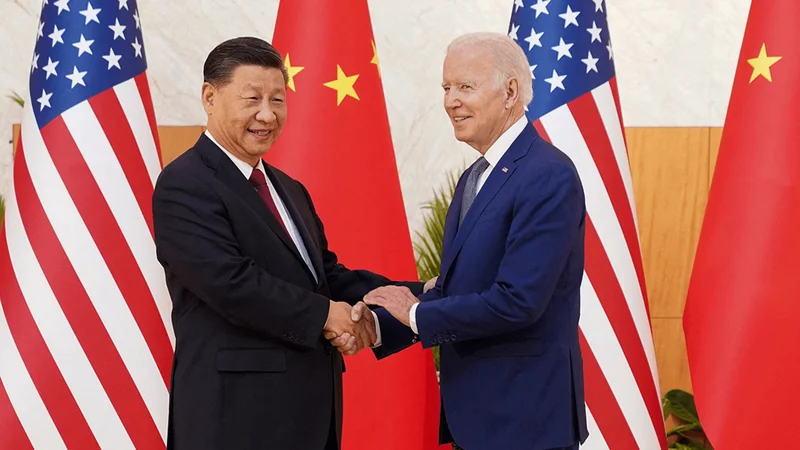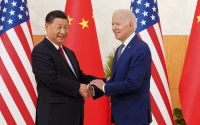Looks like the grown-ups played nice for a hot minute, huh? The headlines are all chirpy about this new U.S.-China trade "deal" that just kicked in. Tariffs cut, critical minerals back on the table, even some fentanyl precursors getting a closer look. Sounds great, right? Like someone finally hit the pause button on the global economic wrestling match.
But let's be real. If you believe this is anything more than two heavyweights taking a much-needed breather between rounds, then you probably still believe in the Tooth Fairy. I ain't buying it. Not for a second. This whole thing feels less like a peace treaty and more like a temporary ceasefire dictated by sheer exhaustion and, let's be honest, a dash of political opportunism on both sides.
The Grand Illusion of a "Truce"
So, what's the big win they want us to celebrate? The U.S. slashed some fentanyl-linked tariffs, and China rolled back its export restrictions on a bunch of stuff we need – rare earth materials, gallium, germanium, all that good stuff. They even threw in a promise to buy a mountain of soybeans, which, bless their hearts, they've reportedly started doing. Oh, and China also suspended sanctions against some South Korean and U.S. shipping companies. For a year. A whole year.
It’s like they’re saying, "See? We can get along!"
But here's the thing: you don't call a truce when you've won. You call a truce when you're battered, bruised, and need to regroup. China's economy just clocked its slowest growth in a year, 4.8% in Q3, down from 5.2%. They've been feeling the pinch of this prolonged trade war. And Trump? He's always looking for a "win" to parade around, especially with another election looming. It’s a classic political dance, an elaborate show for the global audience.
I can just picture it: Xi and Trump in Busan, shaking hands, probably forcing smiles while the cameras flash. The air thick with that fake cordiality, everyone knowing damn well that beneath the surface, the knives are still out. You can almost hear the low hum of their respective war rooms strategizing the next move, not celebrating this one. This isn't a fundamental shift in strategy. It's a tactical retreat. A moment to catch their breath, rearm, and prepare for the next skirmish.
The Real Cold War: AI and the Existential Clock
While we're all focused on whether our iPhones will cost a few bucks more or less, the real war is already underway, and it's got nothing to do with tariffs on synthetic diamonds. No, that's small potatoes. This is about artificial intelligence, and according to some seriously smart folks, we're already knee-deep in a "cold war" for global dominance.

The Center for Security Policy put out a report that's straight-up terrifying, claiming if the Chinese Communist Party (CCP) rules AI by 2030, the U.S. becomes a "second-rate power." J. Michael Waller, a former CIA operative who wrote the report, ain't pulling any punches either. He says America risks losing "everything." Everything! National security implications "beyond anything we've ever imagined."
Think about that for a second. We're talking about CCP-designed AI that probably won't give a damn about our "moral guardrails," dictating global tech standards, flooding markets with cheap AI, and basically driving American companies straight into the ground. And the military implications? Autonomous weapons, "supersoldiers"—it sounds like something out of a bad sci-fi movie, but it's apparently our very real future.
So, while we're arguing about whether China will actually buy those 12 million metric tons of soybeans, are we just letting them build the very machines that'll make us irrelevant? Are we so busy counting pennies we're missing the existential threat looming just five years down the road? It's a bad idea. No, "bad" doesn't cover it—this is a five-alarm dumpster fire waiting to happen, and this trade deal does absolutely squat to address it.
Buying Time, Building Leverage, and the Inevitable
The analysts, God bless 'em, are saying the quiet part out loud. Wendy Cutler from the Asia Society Policy Institute called these steps "so far, so good" but immediately followed up with "just the beginning," reminding us that "de-escalatory moves tend to be short-lived." Morgan Stanley economists are talking about "rolling negotiations, episodic flare-ups, and policy asymmetry as the new equilibrium." That's corporate speak for "get ready for more drama, folks."
Neil Thomas, also from the Asia Society, hits the nail on the head: China's push for self-reliance links directly to its strategic competition with us. This truce, he figures, is just to "buy time and build leverage," with Xi betting his resolve will outlast Trump's. And honestly, looking at the long game, who's got more patience? The guy who can rule for life, or the guy who's got to face voters every four years? My money ain't on the latter, offcourse.
Both sides, deep down, prioritize self-reliance over interdependence. That's not a recipe for lasting peace; it's a recipe for two nations constantly trying to one-up each other, building their own fortresses. This trade deal? It's a temporary patch on a fundamentally broken relationship. A brief moment of calm before the next storm, which is already brewing. My internet bill is probably more stable than this "truce."
Maybe I'm just too cynical. Maybe this is a genuine step forward, a sign that cooler heads are finally prevailing. Nah, who am I kidding?
Just Another Round in the Never-Ending Fight
Let's call this exactly what it is: a tactical pause. A chance for both Washington and Beijing to catch their breath, tend their wounds, and re-arm for the next phase of a competition that neither side truly intends to "win" through cooperation. This isn't a deal. It's a delay. The inevitable clash over AI, Taiwan, and global dominance? That's still coming, and frankly, this trade "truce" barely even registers on that scoreboard.










